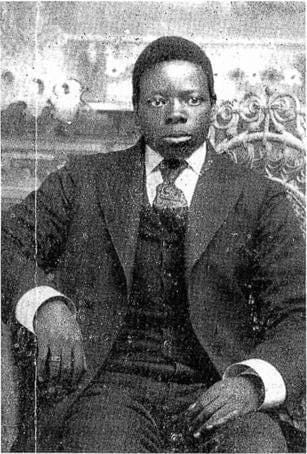Remembering Chilembwe
It is for the sake of the common man that Reverend John Chilembwe led that fatal uprising in 1915
Today, the 15th of January, is the day we remember the fallen hero, Reverend John Chilembwe, who led an armed uprising against the British colonisers on the 23rd of January in 1915.
Of late, there has been a voice from some misguided citizens who are questioning the relevancy of John Chilembwe in the Malawian history and if he is really a hero worthy celebrating. Prominent of the arguments advanced by his group of citizens is that John Chilembwe’s uprising was too localised hence not worth to be celebrated at a national level.
It is argued that the Chilembwe uprising was not nationalistic in nature since it was centred in Chiradzulu where his Providence Industrial Mission was situated.
John Lonsdale in his journal article which was featured in the African Affairs explained that for any movement to be labelled ‘Nationalistic’ it has to satisfy one definition of three major characteristics of modern nationalistic movement namely ‘to aim at the exercise of the sharing of power at the political centre of the colony or future state, to have a leadership which must be conscious of the common people’s aspirations and willing to articulate them and that it must have an active popular following.’
Chilembwe’s movement had an active popular following with members from different parts of Malawi in the names of Elliot Kenan Kamwana of the Watch tower movement, Filipo Chinyama of the Seventh Day Baptist, Charles Domingo, Peter Mlelemba, Wilson Foster Malunga, John Gray Kufa, Wallace Kampingo and David Kaduya. Prominent history scholar, Bridgal Pachai, has attested to this by explaining that, ‘The movement did have a representative leadership covering much of the country…’ hence it can be submitted that the movement was not centred in Chiradzulu.’
Another argument presented by the doubters of Chilembwe’s martyrdom is that John Chilembwe rushed in chasing the British colonisers hence Malawi would not have developed in their absence.
Proponents of this argument lack knowledge as to why the British colonised Malawi.
Britain established a protectorate in Malawi to safeguard the missionaries, planters and traders thus Britain Interests came first and those of the native Malawians was secondary that’s why Malawi did not see much developments when it was in the hands of the colonizers.
It should also be borne in mind that Chilembwe was not against all Europeans per se as some have chosen to portray him. He knew that there were other Europeans like Joseph Booth who were good to Africans and championed their cause to better life and equal treatment and he was even prepared to cooperate with them but not to be subservient or junior to them.
The most favourite and appealing argument put up by the anti Chilembwe citizenry is that John Chilembwe was spurred by personal problems.
These people cite the burning of his bell by William Jervis Livingstone, the failing of his eye sight, his bouts with asthma which was getting worse, the death of his daughter, huge debts to Peter Mlelemba and his frustration for being side-lined by the colonial government as some of the reasons that spurred the Virginia Theological Seminary trained reverend to ‘Strike a blow and die’.
As appealing as it may look, this argument overlooks the previous efforts of John Chilembwe to improve the welfare of Africans.
It is on record that Chilembwe had previously written seven petitions, not including the letters to the Nyasaland Times, to the government on the improvement of African conditions. Speaking to the Chilembwe uprising commission of inquiry, Njoloma who was Chilembwe’s cook, said that John Chilembwe was pushed act due to the behaviour of the cruel constables, Namagowa and Kamphande who, at the orders from their white superiors, took men and women and made them sing and dance naked because they had not paid taxes.
This was the condition all over the country as Elliot Kamwana also pointed of the same when speaking to the Commission of inquiry. Indeed, Chilembwe had accumulated debts but these debts were taken to help fellow Africans by opening and running seven schools in Mulanje and Chiradzulo which the white farmers would burn at will hence frustrating his developments.
It is for the sake of the common man that Reverend John Chilembwe led that fatal uprising on 23rd of July in 1915 and on the 3rd of February, whilst running to Mocambique with his nephew Morris Chilembwe, was shot by private Naluso then by Private Saidi and in the Shakespearean tragedy way, Garnet Kaduya, a church of Scotland preacher and brother to fellow conspirator, David Kaduya, shot Chilembwe in the head. On that fateful day, John Chilembwe, a Father, a Son, a Preacher, a Patriot and a Martyr breathed his last only to be mocked by millennials wallowing in freedom without responsibility.





